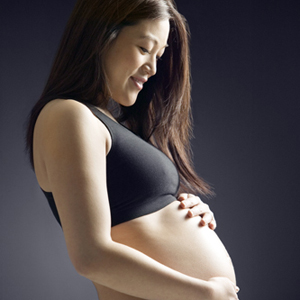 Not all blood glucose meters are up to the task of accurately monitoring pregnant women with hyperglycaemia, according to an Australian-led summary of the evidence.
Not all blood glucose meters are up to the task of accurately monitoring pregnant women with hyperglycaemia, according to an Australian-led summary of the evidence.
A review of studies that assessed the technical accuracy of 10 blood glucose meters over the last 10 years found there was room for improvement given ‘glucose monitoring targets in pregnancy need to be tight’.
“Our review of the studies during pregnancy showed that the accuracy of the glucose meters varied, with the majority showing positive bias and a few showing minimal negative bias. The mean difference varied between -0.33 and 0.73 mmol/L,” stated lead author Professor David Simmons, from the University of Western Sydney and Campelltown Hospital.
“The Roche Accu-Chek Active glucose meter exhibited the lowest mean bias and thus demonstrated the best analytical accuracy,” the article published in Diabetes Care noted.
In addition, the study highlighted the importance of considering the influence of haemodilution and maternal haematocrit level in blood glucose monitoring during pregnancy.
“Blood glucose meters have been shown to overestimate the glucose concentration when the haematocrit level is low, leading to positive bias,” the study authors said.
“Three devices (Optium, Optium Xceed 20s, and Optium Xceed 5s) showed a discrepancy from the reference values with a change in the maternal hematocrit level that rendered them unsuitable for use during pregnancy.”
The article noted that more than 90 glucose meters were on the US market with each differing in glucose measurement technology and sensitivity to hematocrit changes.
The review called for manufacturers to ensure a total error <5%, with bias and imprecision <2% during pregnancy.
Meters featuring automatic measurement and correction for haemacrit changes should be the preferred option during pregnancy.
“Strict metabolic control via accurate SMBG data is vital to improve outcomes among pregnancies complicated by type 2 diabetes because of the high risk of serious adverse perinatal outcomes.”
It added that the 2017 Continuous Glucose Monitoring in Women With Type 1 Diabetes in Pregnancy Trial showed that CGM was associated with a lower incidence of large-for-gestational-age babies, neonatal intensive care unit admissions and neonatal hypoglycemia.
However the evidence was not consistent and more trials were required to support its use in pregnant women with type 2 diabetes and gestational diabetes. There were also issues such as cost and wearability to be addressed
Similarly there was as yet only limited evidence for flash glucose monitoring in pregnancy.
The study was funded by a university scholarship and the authors declared interests in supply of glucose meters for other studies at no cost from Roche Diagnostics.